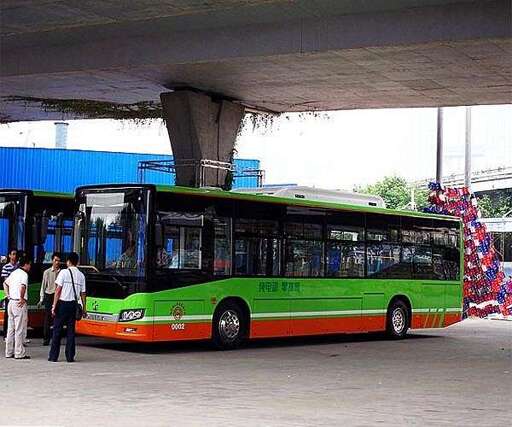Norway: Chinese-made electric buses have major security flaw, can be remotely stopped and disabled by their manufacturer in China, Oslo operator says
The public transport operator in Norway’s capital said Tuesday that some electric buses from China have a serious flaw – software that could allow the manufacturer, or nefarious actors, to take control of the vehicle.
Oslo’s transport operator Ruter said they had tested two electric buses this summer – one built by China’s Yutong and the other by Dutch firm VDL.
The Chinese model featured a SIM card that allowed the manufacturer to remotely install software updates that made it vulnerable, whereas the Dutch model did not.
“We’ve found that everything that is connected poses a risk – and that includes buses,” Ruter director Bernt Reitan Jenssen told public broadcaster NRK.
“There is a risk that for example suppliers could take control, but also that other players could break into this value chain and influence the buses.”
Ruter said it was now developing a digital firewall to guard against the issue.
According to other reports, the Chinese manufacturer has access to each bus’s software updates, diagnostics, and battery control systems. “In theory, the bus could therefore be stopped or rendered unusable by the manufacturer,” the company said.
Ruter has reported its findings to Norway’s Ministry of Transport and Communications.
Arild Tjomsland, a special advisor at the University of South-Eastern Norway who helped conduct the tests, said: “The Chinese bus can be stopped, turned off, or receive updates that can destroy the technology that the bus needs to operate normally.”
[…]



I take it ‘SIM card’ in this case does not mean what it means with a cellphone.
It very much does mean the sort that is in a cellphone, connecting to GSM networks. Anytime you hear about a car that has OTA updates, that’s how they’re doing it. That includes electric cars like Tesla, but also ICE cars made by Hyundai, Honda, BMW and others. Manufacturers have been found to be selling information about your driving patterns to insurance companies without the consent of the owner, affecting their premiums.
They can afford too because they are data-only plans, bought in large bulk quantities, with fairly low data caps.
Oh ok great. So they can just pop open the tray with a paperclip and take the chip out. I’m not seeing the issue.
It’s just as likely that they have a poison pill that disables the vehicle if it can’t make a connection within x amount of minutes, hours or days.
…oh.
Nowadays most likely some form of eSIM, but yeah, pretty much the same as in a cellphone.
deleted by creator
Almost all cars are permanent online nowadays, not only EVs, and the cat’s manufacturer has a detailed profile on it. This has been standard tech for years.
Investigating a modern car and finding a SIM card is as surprising as finding an engine or a break. The odd one out is not the Chinese bus, but the Dutch one, if it really has no SIM card
@princessnorah@lemmy.blahaj.zone
Big if true